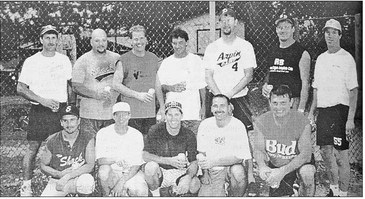Dog tag fees may double
Owning a dog in Marathon County could get more expensive next year under a proposal to double the county’s licensing fees.
The proposal to be voted on Thursday by the county board would charge residents $12 per year for licensing a neutered or spayed dog and $20 per year for an un-neutered or un-spayed canine. The price for a kennel license, which allows residents to keep up to 12 dogs on their property, would also increase from $50 to $80, plus an extra $12 per additional dog.
County clerk Kim Trueblood spoke about the need for a fee increase at the Sept. 10 meeting of the Human Resources, Finance and Capital Committee, which voted to recommend the new rates to the full board.
Trueblood said the county has not increased its dog license fees since 2001, leaving a large funding gap between what it collects from municipalities and what it pays to the Marathon County Humane Society for shelter services. A couple years ago, Trueblood said the Humane Society increased its annual contract amount to $100,000, even though the county normally only collects between $30,000 and $35,000 in fees.
“We’re really left with the only option being to raise the fees we collect from the municipalities,” she said.
The county never knows exactly how much revenue to expect each year because it depends on how many dogs are in the county and how faithful people are about licensing them, she said. In addition to the money paid to the Humane Society, the county must also send 5 percent of what it collects to the state.
If the number of licensed dogs stays the same from this year to next, Trueblood said the county could expect to see about $75,000 in revenue in 2026, which would go a long ways toward closing the funding deficit for the Humane Society contract. Any portion of the cost not covered by license fees must be paid for by the county’s property tax levy.
Going forward, county administrator Lance Leonhard said the county plans to continually raise the dog license fees every year based on increases in the Consumer Price Index (CPI), which is considered the gold standard for measuring inflation.
Increasing the dog license fees is part of a larger countywide plan for increasing user fees in order to offset the cost of services in next year’s budget while staying within state-imposed levy limits. Leonhard has previously told members to expect an average 7.5 percent increase in fees across the board proposed for next year.
Leonhard said he’s also asking department heads to look for ways of increasing efficiency and learning to operate with fewer employees, noting that “no less than 15” vacant positions will be defunded as part of his budget proposal.




